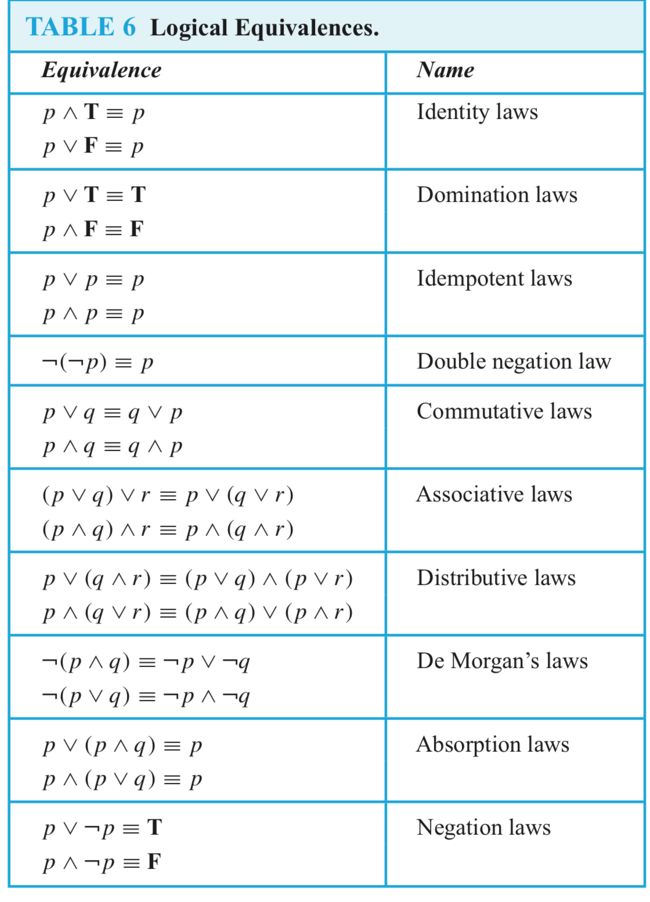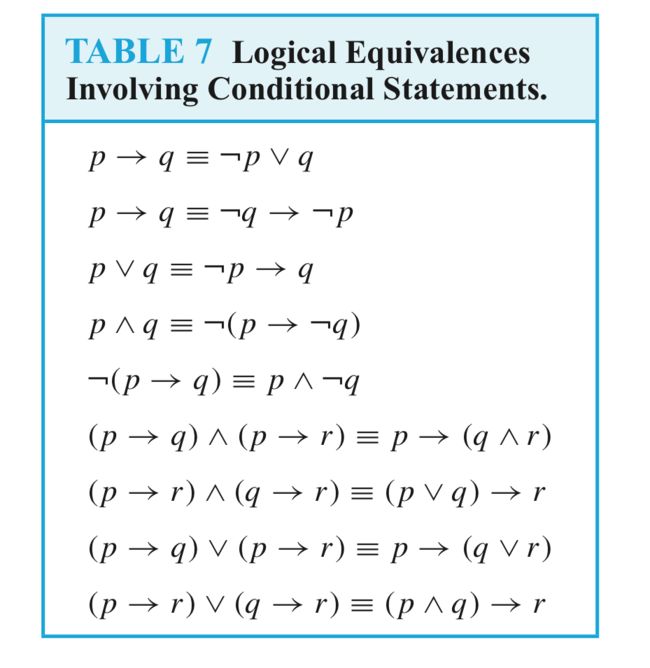- CF1733E Conveyor 题解
CF1733EConveyor题意:有个120120120行,120120120列的棋盘。每个格子初始方向向右。每秒(0,0)(0,0)(0,0)产生一个史莱姆,所有史莱姆随格子方向移动。接着所有格子改变方向,向右变为向下,向下变成向右。若两个史莱姆相遇则合并为一个。qqq次询问,第ttt秒时(x,y)(x,y)(x,y)是否有。t≤1018t\leq10^{18}t≤1018思路:注意每一秒是每
- iOS上架审核4.3(解决iOS审核4.3马甲包)
风吹_裤衩鸡
iOS审核iosxcodeobjective-cswiftwebapp
经历4.3之后上架,记录一下最近公司研发出一个App,公司新申请的开发者账户,新的App项目和源码,构建完成上传到TestFlight,交给我们测试,测试正常之后,就直接提审了,结果第二天直接4.3;也不知道是到底是代码问题,还是其他什么问题,经过百度了解到是在人工审核时,给了4.3。紧接着我们上午就回复了苹果1.我们是正规的APP,并不是马甲包2.说明了我们的App与线上App的功能异同与特别之
- 2023-08-04
2023梦启支教团王耀民
发掘劳动之美,引领成功道路——中国矿业大学梦启支教团开展劳动教育课程7月19日下午,中国矿业大学梦启支教团在贵州省毕节市金沙县第九小学(彩虹小学)开展劳动教育课程,该课程旨在使同学们树立正确的劳动观点和劳动态度,热爱劳动和劳动人民,养成劳动习惯,课程由李洋老师主讲。李洋老师首先根据童话故事三只小猪,引起学生兴趣,同时也引出劳动的重要性,说明只有通过勤劳的双手务实才能实现目标。随后,他从整理与收纳、
- P5680 [GZOI2017] 共享单车 题解
MYJ_aiie
题解图论c++算法学习
P5680[GZOI2017]共享单车题意:(真的是非常难懂啊)一张带权双向连通图和源点kkk,画出它的最短路径树。树上每个点颜色初始为000,有两种操作:000操作是把部分点的颜色取反,$1$操作是根据给定点和根节点(也就是前面的源点),建虚树,问在虚树上使得颜色为111的点与KKK不连通的所需的最小代价。N≤50000N\le50000N≤50000,M≤100000M\le100000M≤1
- Python 计算月头月尾
一本正经胡说八道的猫
一本正经胡说八道的猫#!/usr/bin/envpython#-*-coding:utf-8-*-importdatetimeimportcalendartime=datetime.date(2022,1,20)#年,月,日#求该月第一天first_day=datetime.date(time.year,time.month,1)print('该月第一天:%s'%(first_day))#求前一个
- 2023-02-06
谦谦有益
刘明颜Clare和彭智在微信上的聊天记录如下,请查收。—————2021-10-01—————名言姐-训练营2期-北京三不沾18:07没事,我推荐的都是付费的[呲牙]上了价值传递训练营的,名言姐-训练营2期-北京三不沾18:07你找一下付费同读一本书的。彭智18:16我今天在博物馆看到导游跟领导一起坐电梯。当电梯门开了时,导游一直扶(挡着)着电梯口。通过这个细节,让我学了细心[呲牙],下次我要用。
- Kotlin 泛型 | 01. 基础
一、泛型1.1含义参数化类型,用尖括号这种方式表示,如、、等。比如:方法的参数一般指定具体类型,如果把参数的类型也参数化,那这就是泛型本尊了。interfaceList:Collection{overridefuncontains(element:@UnsafeVarianceE):Boolean}总的来说,泛型本质就是参数化类型,这种类型可以用在类、接口和方法的创建中,分别称为泛型类、泛型接口、
- NiFi Processors概述
一个老冯
为了能够创建一个高效的NiFi数据数据流程,我们需要了解有哪些Processor类型可以使用。每个新的NiFi版本Processor数量都会增加,当前NiFi版本为1.12.1,内置了288个类型的Proccessor,这些Processor提供从多个不同系统接收数据、路由、转换、处理、拆分和聚合数据以及将数据分发到多个系统的功能。按照功能分类:image.png.procesor分类说明1.1数
- 悦读拾光2019.6.26《被讨厌的勇气》-岸见一郎
哆啦芳
这本书是在追剧后想看的,我一般很多书都是在追剧之前买的,因为看书比追剧快,而且我这人一追剧必然是昏天暗地的,不看完不罢休,每天也象打鸡血一般睡一两个小时工作娱乐不妨碍,剧情结束变呵欠连天。扯远了些,这本书是哲学课,心理学内容,也是第一次知道了除了弗诺伊德、荣格之外并列心理学三巨头最不知名却时时听其理论的阿德勒先生。本书通过青年与哲人对话进行,所谓智辩则明。1、世界是简单的,人生也是简单的井水恒定1
- 【im】如何解决消息的实时到达问题?
Bogon
TCP长连接的方式是怎么实现“当有消息需要发送给某个用户时,能够准确找到这个用户对应的网络连接”?首先用户有一个登陆的过程:(1)tcp客户端与服务端通过三次握手建立tcp连接;(2)基于该连接客户端发送登陆请求;(3)服务端对登陆请求进行解析和判断,如果合法,就将当前用户的uid和标识当前tcp连接的socket描述符(也就是fd)建立映射关系;(4)这个映射关系一般是保存在本地缓存或分布式缓存
- 你想了解外卖返利app有哪些?详情都在这!
好项目高省
外卖返利app有哪些?这是一个让很多消费者都感到好奇的问题。【高省】APP(高佣金领导者)是一个自用省钱佣金高,分享推广赚钱多的平台,百度有几百万篇报道,运行三年,稳定可靠。高省APP,是2021年推出的平台,0投资,0风险、高省APP佣金更高,模式更好,终端用户不流失。高省是公认的返利最高的软件。古楼导师高省邀请码555888,注册送2皇冠会员,送万元推广大礼包,教你如何1年做到百万团队。首先,
- 矛盾中不违和的优雅 (0112) / 林世儒
示如_走在成為自己的路上
最近这几年易经让我深深着迷,多年在心灵成长上的寻找与精进,在开始研究易经之后,有一些困扰已久的问题开始迎刃而解,有些观念的传达也变得更加容易与清晰,甚至开展了我的视野,可以用更多角度、更多层次,更多的方法,并更有结构地来观察、说明与实际执行,它就像一把万能钥匙,几乎可以打开所有上锁的门。我曾经对于「临在」一词感到不解,有人告诉我说就是「活在当下」啊!这样的说明并没有减少我的疑惑,这只是用一个新词替
- 4月30日
最怜天上月q
20190430星期二1.关于这个世界,我们需要了解的第一个道理就是:大家都不傻,谁都是聪明人,如果你看到一个人貌似在做一件傻事,那只能是说明你不了解这个人。在他的世界里,还有别的原因支持他坚持做一件别人别人无法理解的“傻”事。——光一《傻事》2.我们在大地上扎根,靠的是日常生活的牵挂、责任和爱。在平时,这一切使我们忘记死亡。在死亡来临的时,对这一切的眷恋又把我们的注意力从死亡移开,从而使我们超越
- CentOS 7 最新可用国内 yum 镜像源配置(含 Base 与 EPEL 源)
寒水馨
软件解惑CentOS7yum国内镜像源repoepel
CentOS7最新可用国内yum镜像源配置(含Base与EPEL源)解决官方源访问慢、国内部分镜像失效问题,提供实测可用方案文章目录CentOS7最新可用国内yum镜像源配置(含Base与EPEL源)1.镜像源简介1.1.什么是yum源1.2.什么是镜像源、国内镜像源1.3.Base与EPEL源简介1.3.1.Base源(基础仓库)Base源示例软件包:1.3.2.EPEL源(企业Linux的额外
- 2023-07-26
欧阳木木
蒙古第一次西征从1205年到1227年,蒙古花了二十多年的时间灭掉了西夏,其实在这二十多年的时间里,成吉思汗的侵略对象不仅仅是西夏这一个政权,这一讲,我们就聊一聊,成吉思汗建国以后在另一条线路上发动的侵略战争。13世纪初的东亚格局,蒙古国的南部是西夏,现在我们再补充一点,在蒙古的西南方向,还有两个大的政权,一个叫西辽,一个叫花剌子模,这两个政权就是成吉思汗在西线的主要敌人。对于成吉思汗时代对这一条
- 感赏日志(71)
云飞月
感赏老公早上打的美味果昔早餐,也感赏果昔早餐为我们带来满满的能量!感赏复合果汁为我们排毒,让我们一整天都活力十足!昨晚听亲子课程,锦明老师说写够100篇感赏日志自然会看到变化,今天数数,我竟然也写了70篇了,以前大部分都写在本子上,现在觉得写在上满方便的,好修改,再写一个月的时间就有100篇了。现在虽然因为孩子是住校,手机也不能带,所以孩子的变化我也没太看出来,不过自己的变化是很明显的,现在凡事都
- leetcode_121 买卖股票的最佳时期
_不会dp不改名_
#贪心#动态规划leetcode算法职场和发展
1.题意有一个股价变化图,你可以在一天买入,在未来一天卖出。求通过这样一次操作的最大获利。2.题解2.1枚举直接枚举,买入卖出的时间,肯定会超时啦~时间复杂度为O(n2)O(n^2)O(n2)空间复杂度为O(1)O(1)O(1)classSolution{public:intmaxProfit(vector&prices){intans=0;intn=prices.size();for(inti=
- 《花都美人图》叶飞全文免费阅读(完整无删减)
云轩书阁
《花都美人图》叶飞全文免费阅读(完整无删减)主角:叶飞简介:叶飞开了间小诊所,却被权势滔天的恶少抢走药方,还被刺瞎双眼,受尽凌辱。走投无路之下,叶飞成了红尘会所的盲人技师,这天,富少的娇妻来做全身按摩,不知情下点了叶飞,叶飞发誓要狠狠报复回去……关注微信公众号【职场慧姐】去回个书號【2601】,即可阅读【花都美人图】小说全文!“啊——”痛苦中带着满足的惨叫声,顿时响彻在包厢里。王丽萍担心的问道:“
- 男粉丝面临集体失恋?石原里美带男友过父母关,好事将近
迷影生活
提起石原里美大家一定不会陌生,在当今的日本演艺界,石原里美是当之无愧的收视女王,2018年,石原里美更是凭其主演的《非正常死亡》一剧,获得第96届日剧学院赏最佳女主角奖项。该剧在我国也掀起了一股追剧热潮,剧中所传达出的尊重生命,不因罪犯有苦衷就对其进行宽恕的主旨也引发热议。不仅如此,石原里美的妆容穿搭也每每引发时尚界的追捧。可以说,无论业务能力还是个人魅力,石原里美都具有着无可替代的吸引力,被无数
- 莆田鞋拿货渠道一览表,请记住这八个渠道
美鞋之家
莆田鞋拿货渠道一览表,请记住这八个渠道莆田鞋在哪里拿货,莆田鞋一般都选择售后有保障的网站拿货比较好,一般在正规莆田鞋拿货渠道有工厂、档口、1688等渠道拿货;莆田鞋拿货平台有莆田鞋货源网、淘宝、京东、微商等等平台。微信:669249(下单赠送精美礼品)莆田鞋十大拿货渠道1、1688拿货,1688上面也是有莆田鞋拿货渠道的,而且很多支持一件代发,不过单价较高,利润很小。2、拼多多拿货,拼多多的东西是
- springboot整合Swagger
志华2020
Swagger简介1、认识SwaggerSwagger是一个规范和完整的框架,用于生成、描述、调用和可视化RESTful风格的Web服务。总体目标是使客户端和文件系统作为服务器以同样的速度来更新。文件的方法,参数和模型紧密集成到服务器端的代码,允许API来始终保持同步。作用:1.接口的文档在线自动生成。2.功能测试。Swagger是一组开源项目,其中主要要项目如下:Swagger-tools:提供
- “结婚3年,因为说了这2个字的,差点离婚”,吵架也讲究技巧
遇见逗逗
作者:逗逗原创作品,抄袭搬运必究。01.林笑笑跟她的老公两个人结婚3年后,感情还是跟以前恋爱时一样,吵吵闹闹的。似乎大事小事,他们总能吵一阵子,刚好我们家住在他们楼下,还会还听到他们吵架的动静。有一天,林笑笑的老公晚上下班回家,关门的声音比较大,可能是因为风吹,也可能是因为他确实不小心关得很大声吧。恰好林笑笑那天工作出了差错,被领导批评了,心情很郁闷,看到老公关门这么大声,一下子还有点生气了,不客
- 2023-01-04
908b7d8a7477
你没打过一个电话,你没分发一块面包,你没送人一杯温水,你没帮助过,那你跟我没有一毛钱关系,你也别来找我。
- 2020-墨菲定律-人性的优点和弱点(8)
12_德德
30、情绪转移定律:小心,坏情绪会传染;指人的不好情绪如果没有得到适当的宣泄,就会转移到其他人和事上,是一种情绪的蔓延现象。生活中,我们的坏心情就像流感一样,如果不加以控制,就会不断蔓延。31、一方面,可以有意识地转移注意焦点。当你遇到挫折,感到苦闷、烦恼,情绪处于低潮时,就暂时抛开眼前的麻烦,不要再去想引起苦闷、烦恼的事,而把注意力转移到自己较感兴趣的活动和话题中去。多回忆自己感到最幸福、最愉快
- 生产故障排查记录:Redis 中间件疑难错误排查与修复
韩先超
redis中间件php数据库缓存
欢迎关注我的公众号「DevOps和k8s全栈技术」,进公众号【服务】栏,可以看到技术群,点击即可加入学习交流群。↓↓↓一、问题描述某生产环境中,Redis集群出现间歇性超时(timeout)和高延迟,部分应用侧出现READONLYYoucan'twriteagainstaread-onlyreplica错误。二、问题分析1.错误现象1)应用层报错:Timeoutwaitingforconnecti
- ARTS-第七周
梧上擎天
Algorithm一、用链表和二叉树实现Set集合GitHub地址二、散列表散列表就是使用数组下标随机访问时候复杂度为O(1)的特性,当我们按照键值查找元素时,通过散列函数将key转化为下标然后进行访问,当有大量散列冲突时会退化为O(n)的时间复杂度。解决散列冲突的方法:开放寻址法和链表法ReviewFlink动态表概念原文地址流和表为什么可以相互转换呢?我们都知道传统Mysql的主从复制是通过b
- 2022-11-28
WJSHI
加强新时代廉洁文化建设习近平总书记在十九届中央纪委六次全会重要讲话中指出:“领导干部特别是高级干部要带头落实关于加强新时代廉洁文化建设的意见,从思想上固本培元,提高党性觉悟,增强拒腐防变能力。”加强新时代廉洁文化建设,是持续深化不敢腐、不能腐、不想腐一体推进,惩治震慑、制度约束、提高觉悟一体发力的根本所在,是全面从严治党和解决党风廉政问题的治本之道。加强新时代廉洁文化建设要坚定文化自信,用战略思维
- golang语法-----指针
查理养殖场
编程语言笔记golang开发语言
一、核心语法1、取地址符&,用在一个变量前面,获取这个变量的内存地址。packagemainimport"fmt"funcmain(){name:="Alice"//变量name,它的值是"Alice"//&name获取变量name的内存地址//p是一个指针变量,它存储了name的地址//p的类型是*string,读作"string类型的指针"p:=&namefmt.Println("变量name
- nest.js实战之集成Apple登录
crayon-shin-chan
surprise#nest.jsapplenestjs
1.简介https://developer.apple.com/documentation/sign_in_with_apple/sign_in_with_apple_rest_api/verifying_a_userApple登录也是符合OAuth2规范的,但是我们不需要执行所有的步骤,只需要解析idToken获取用户信息即可Apple登录时用户可以选择是否隐藏邮箱,如果隐藏邮箱,则获取的邮箱是
- 下班后做手机兼职刚刚好,天冷的时候可以在家兼职
手机聊天员赚钱平台
我之前也提到过,很多晚班的兼职工作并不太划算,小时工资也不超过30元。仅仅努力工作是不够的。选择正确的方向也是非常重要的。因此,我推荐租车和跑快车的做法。当然,也有一定的局限性。一些网民不会开车,也不愿意放弃1W的押金。给大家推荐一个陪聊赚米项目叭,正规陪聊项目,网易云旗下大平台,无任何费用,下方有微信二维码,可扫码了解,也可点击链接,联系我们了解:https://www.jianshu.com/
- sql统计相同项个数并按名次显示
朱辉辉33
javaoracle
现在有如下这样一个表:
A表
ID Name time
------------------------------
0001 aaa 2006-11-18
0002 ccc 2006-11-18
0003 eee 2006-11-18
0004 aaa 2006-11-18
0005 eee 2006-11-18
0004 aaa 2006-11-18
0002 ccc 20
- Android+Jquery Mobile学习系列-目录
白糖_
JQuery Mobile
最近在研究学习基于Android的移动应用开发,准备给家里人做一个应用程序用用。向公司手机移动团队咨询了下,觉得使用Android的WebView上手最快,因为WebView等于是一个内置浏览器,可以基于html页面开发,不用去学习Android自带的七七八八的控件。然后加上Jquery mobile的样式渲染和事件等,就能非常方便的做动态应用了。
从现在起,往后一段时间,我打算
- 如何给线程池命名
daysinsun
线程池
在系统运行后,在线程快照里总是看到线程池的名字为pool-xx,这样导致很不好定位,怎么给线程池一个有意义的名字呢。参照ThreadPoolExecutor类的ThreadFactory,自己实现ThreadFactory接口,重写newThread方法即可。参考代码如下:
public class Named
- IE 中"HTML Parsing Error:Unable to modify the parent container element before the
周凡杨
html解析errorreadyState
错误: IE 中"HTML Parsing Error:Unable to modify the parent container element before the child element is closed"
现象: 同事之间几个IE 测试情况下,有的报这个错,有的不报。经查询资料后,可归纳以下原因。
- java上传
g21121
java
我们在做web项目中通常会遇到上传文件的情况,用struts等框架的会直接用的自带的标签和组件,今天说的是利用servlet来完成上传。
我们这里利用到commons-fileupload组件,相关jar包可以取apache官网下载:http://commons.apache.org/
下面是servlet的代码:
//定义一个磁盘文件工厂
DiskFileItemFactory fact
- SpringMVC配置学习
510888780
springmvc
spring MVC配置详解
现在主流的Web MVC框架除了Struts这个主力 外,其次就是Spring MVC了,因此这也是作为一名程序员需要掌握的主流框架,框架选择多了,应对多变的需求和业务时,可实行的方案自然就多了。不过要想灵活运用Spring MVC来应对大多数的Web开发,就必须要掌握它的配置及原理。
一、Spring MVC环境搭建:(Spring 2.5.6 + Hi
- spring mvc-jfreeChart 柱图(1)
布衣凌宇
jfreechart
第一步:下载jfreeChart包,注意是jfreeChart文件lib目录下的,jcommon-1.0.23.jar和jfreechart-1.0.19.jar两个包即可;
第二步:配置web.xml;
web.xml代码如下
<servlet>
<servlet-name>jfreechart</servlet-nam
- 我的spring学习笔记13-容器扩展点之PropertyPlaceholderConfigurer
aijuans
Spring3
PropertyPlaceholderConfigurer是个bean工厂后置处理器的实现,也就是BeanFactoryPostProcessor接口的一个实现。关于BeanFactoryPostProcessor和BeanPostProcessor类似。我会在其他地方介绍。PropertyPlaceholderConfigurer可以将上下文(配置文件)中的属性值放在另一个单独的标准java P
- java 线程池使用 Runnable&Callable&Future
antlove
javathreadRunnablecallablefuture
1. 创建线程池
ExecutorService executorService = Executors.newCachedThreadPool();
2. 执行一次线程,调用Runnable接口实现
Future<?> future = executorService.submit(new DefaultRunnable());
System.out.prin
- XML语法元素结构的总结
百合不是茶
xml树结构
1.XML介绍1969年 gml (主要目的是要在不同的机器进行通信的数据规范)1985年 sgml standard generralized markup language1993年 html(www网)1998年 xml extensible markup language
- 改变eclipse编码格式
bijian1013
eclipse编码格式
1.改变整个工作空间的编码格式
改变整个工作空间的编码格式,这样以后新建的文件也是新设置的编码格式。
Eclipse->window->preferences->General->workspace-
- javascript中return的设计缺陷
bijian1013
JavaScriptAngularJS
代码1:
<script>
var gisService = (function(window)
{
return
{
name:function ()
{
alert(1);
}
};
})(this);
gisService.name();
&l
- 【持久化框架MyBatis3八】Spring集成MyBatis3
bit1129
Mybatis3
pom.xml配置
Maven的pom中主要包括:
MyBatis
MyBatis-Spring
Spring
MySQL-Connector-Java
Druid
applicationContext.xml配置
<?xml version="1.0" encoding="UTF-8"?>
&
- java web项目启动时自动加载自定义properties文件
bitray
javaWeb监听器相对路径
创建一个类
public class ContextInitListener implements ServletContextListener
使得该类成为一个监听器。用于监听整个容器生命周期的,主要是初始化和销毁的。
类创建后要在web.xml配置文件中增加一个简单的监听器配置,即刚才我们定义的类。
<listener>
<des
- 用nginx区分文件大小做出不同响应
ronin47
昨晚和前21v的同事聊天,说到我离职后一些技术上的更新。其中有个给某大客户(游戏下载类)的特殊需求设计,因为文件大小差距很大——估计是大版本和补丁的区别——又走的是同一个域名,而squid在响应比较大的文件时,尤其是初次下载的时候,性能比较差,所以拆成两组服务器,squid服务于较小的文件,通过pull方式从peer层获取,nginx服务于较大的文件,通过push方式由peer层分发同步。外部发布
- java-67-扑克牌的顺子.从扑克牌中随机抽5张牌,判断是不是一个顺子,即这5张牌是不是连续的.2-10为数字本身,A为1,J为11,Q为12,K为13,而大
bylijinnan
java
package com.ljn.base;
import java.util.Arrays;
import java.util.Random;
public class ContinuousPoker {
/**
* Q67 扑克牌的顺子 从扑克牌中随机抽5张牌,判断是不是一个顺子,即这5张牌是不是连续的。
* 2-10为数字本身,A为1,J为1
- 翟鸿燊老师语录
ccii
翟鸿燊
一、国学应用智慧TAT之亮剑精神A
1. 角色就是人格
就像你一回家的时候,你一进屋里面,你已经是儿子,是姑娘啦,给老爸老妈倒怀水吧,你还觉得你是老总呢?还拿派呢?就像今天一样,你们往这儿一坐,你们之间是什么,同学,是朋友。
还有下属最忌讳的就是领导向他询问情况的时候,什么我不知道,我不清楚,该你知道的你凭什么不知道
- [光速与宇宙]进行光速飞行的一些问题
comsci
问题
在人类整体进入宇宙时代,即将开展深空宇宙探索之前,我有几个猜想想告诉大家
仅仅是猜想。。。未经官方证实
1:要在宇宙中进行光速飞行,必须首先获得宇宙中的航行通行证,而这个航行通行证并不是我们平常认为的那种带钢印的证书,是什么呢? 下面我来告诉
- oracle undo解析
cwqcwqmax9
oracle
oracle undo解析2012-09-24 09:02:01 我来说两句 作者:虫师收藏 我要投稿
Undo是干嘛用的? &nb
- java中各种集合的详细介绍
dashuaifu
java集合
一,java中各种集合的关系图 Collection 接口的接口 对象的集合 ├ List 子接口 &n
- 卸载windows服务的方法
dcj3sjt126com
windowsservice
卸载Windows服务的方法
在Windows中,有一类程序称为服务,在操作系统内核加载完成后就开始加载。这里程序往往运行在操作系统的底层,因此资源占用比较大、执行效率比较高,比较有代表性的就是杀毒软件。但是一旦因为特殊原因不能正确卸载这些程序了,其加载在Windows内的服务就不容易删除了。即便是删除注册表中的相 应项目,虽然不启动了,但是系统中仍然存在此项服务,只是没有加载而已。如果安装其他
- Warning: The Copy Bundle Resources build phase contains this target's Info.plist
dcj3sjt126com
iosxcode
http://developer.apple.com/iphone/library/qa/qa2009/qa1649.html
Excerpt:
You are getting this warning because you probably added your Info.plist file to your Copy Bundle
- 2014之C++学习笔记(一)
Etwo
C++EtwoEtwoiterator迭代器
已经有很长一段时间没有写博客了,可能大家已经淡忘了Etwo这个人的存在,这一年多以来,本人从事了AS的相关开发工作,但最近一段时间,AS在天朝的没落,相信有很多码农也都清楚,现在的页游基本上达到饱和,手机上的游戏基本被unity3D与cocos占据,AS基本没有容身之处。so。。。最近我并不打算直接转型
- js跨越获取数据问题记录
haifengwuch
jsonpjsonAjax
js的跨越问题,普通的ajax无法获取服务器返回的值。
第一种解决方案,通过getson,后台配合方式,实现。
Java后台代码:
protected void doPost(HttpServletRequest req, HttpServletResponse resp)
throws ServletException, IOException {
String ca
- 蓝色jQuery导航条
ini
JavaScripthtmljqueryWebhtml5
效果体验:http://keleyi.com/keleyi/phtml/jqtexiao/39.htmHTML文件代码:
<!DOCTYPE html>
<html xmlns="http://www.w3.org/1999/xhtml">
<head>
<title>jQuery鼠标悬停上下滑动导航条 - 柯乐义<
- linux部署jdk,tomcat,mysql
kerryg
jdktomcatlinuxmysql
1、安装java环境jdk:
一般系统都会默认自带的JDK,但是不太好用,都会卸载了,然后重新安装。
1.1)、卸载:
(rpm -qa :查询已经安装哪些软件包;
rmp -q 软件包:查询指定包是否已
- DOMContentLoaded VS onload VS onreadystatechange
mutongwu
jqueryjs
1. DOMContentLoaded 在页面html、script、style加载完毕即可触发,无需等待所有资源(image/iframe)加载完毕。(IE9+)
2. onload是最早支持的事件,要求所有资源加载完毕触发。
3. onreadystatechange 开始在IE引入,后来其它浏览器也有一定的实现。涉及以下 document , applet, embed, fra
- sql批量插入数据
qifeifei
批量插入
hi,
自己在做工程的时候,遇到批量插入数据的数据修复场景。我的思路是在插入前准备一个临时表,临时表的整理就看当时的选择条件了,临时表就是要插入的数据集,最后再批量插入到数据库中。
WITH tempT AS (
SELECT
item_id AS combo_id,
item_id,
now() AS create_date
FROM
a
- log4j打印日志文件 如何实现相对路径到 项目工程下
thinkfreer
Weblog4j应用服务器日志
最近为了实现统计一个网站的访问量,记录用户的登录信息,以方便站长实时了解自己网站的访问情况,选择了Apache 的log4j,但是在选择相对路径那块 卡主了,X度了好多方法(其实大多都是一样的内用,还一个字都不差的),都没有能解决问题,无奈搞了2天终于解决了,与大家分享一下
需求:
用户登录该网站时,把用户的登录名,ip,时间。统计到一个txt文档里,以方便其他系统调用此txt。项目名
- linux下mysql-5.6.23.tar.gz安装与配置
笑我痴狂
mysqllinuxunix
1.卸载系统默认的mysql
[root@localhost ~]# rpm -qa | grep mysql
mysql-libs-5.1.66-2.el6_3.x86_64
mysql-devel-5.1.66-2.el6_3.x86_64
mysql-5.1.66-2.el6_3.x86_64
[root@localhost ~]# rpm -e mysql-libs-5.1





